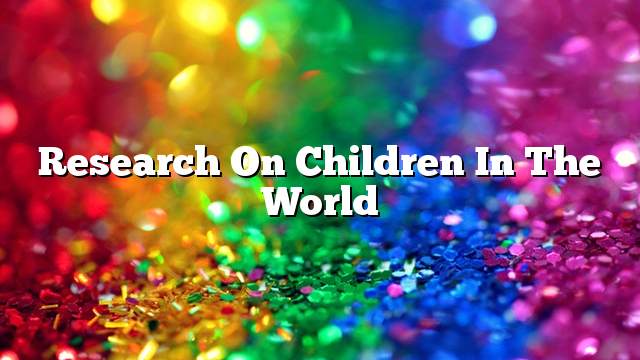Children around the world
The issue of children’s needs is a new issue because of its renewed component, namely, the child. The greater the need for safety, food, drink and dress, the more the child needs to be supported by many parties, such as governments, voluntary organizations, parents and official institutions, as well as businessmen and companies with capital. Education, expression rights and many more.
Children in Africa
At least 247 million children, equivalent to two in three children in the southern Africa desert, live in extreme poverty due to different causes and different dimensions. They are deprived of growth. By 2030, 30 million children are expected to die before reaching the age of five for preventable causes Without them.
In terms of education in this area, there has been a noticeable increase in the number of children not enrolled in school since 2011, and a large proportion of those who go to school do not actually benefit from it. Two out of every five children who graduate from Basic school reading and writing and simple mathematical skills.
Child labor
The phenomenon of child labor in laborious labor for the child’s body and psychology is a manifestation of slavery and exploitation, and is evident in poor areas, especially rural ones. International conventions have criminalized and penalized employers involved. According to the reports of the organizations concerned, 18 years of age and economic exploitation, and the causes of child labor are as follows:
- Lack of cultural awareness among the family; non-educated parents frequently influence education.
- Parents are unable to meet their needs and the needs of their children, thus forcing the child to choose or be forced to help his or her parents.
- Racism.
- Wars and crises that create an economic burden.
Statistics
According to UNICEF reports for 2016:
- The mortality rate of children under the age of five has halved since 1990.
- The enrollment rate of children of both sexes in primary schools increased in equal numbers in 129 countries.
- The number of people living in extreme poverty fell to half of what it was in the 1990s.
“Depriving millions of children of a fair chance in life not only threatens their future – but also feeds the cycle of deprivation that passes from generation to generation, putting the future of societies at risk,” says UNICEF Executive Director Anthony Lake. “We have a choice: either to invest in these children now, or to allow the year to become more divided and more unequal.”
